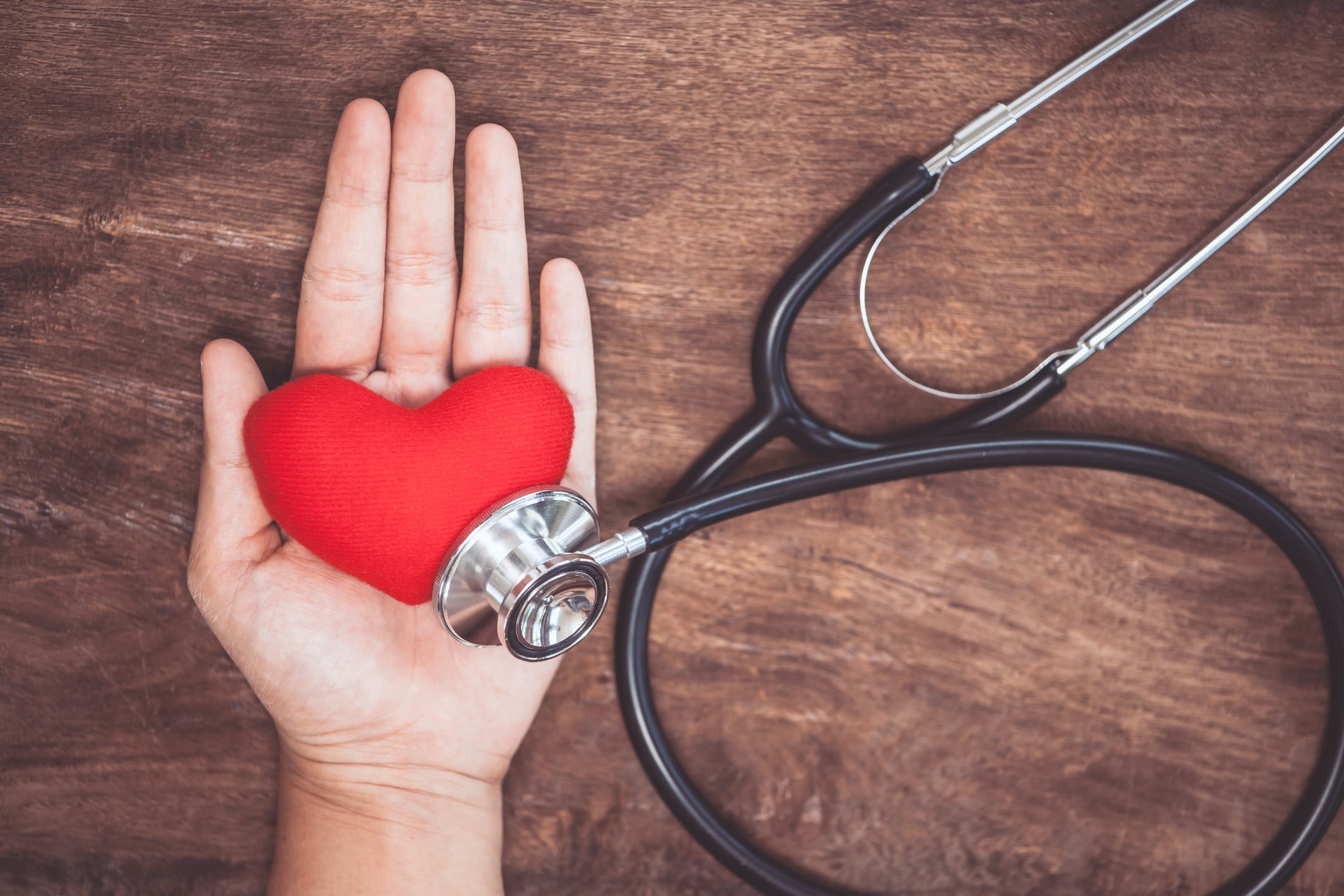Let’s be honest, sometimes we all think we’re a little invincible. We stay out late, eat whatever we want, skip our workouts…the list goes on. These practices may seem innocent enough at first. But when you live like this for days, or weeks, or even months on end, it can really catch up to you quickly.
Maybe there is not a history of heart disease in your family but poor habits could make you the first. Some of you may also think that you’re too young to start thinking about your heart health, but trust us, you don’t want to play fast and loose when it comes to your heart.
Did you know that heart problems are the leading cause of death in the United States? In 2011 alone, for example, heart disease killed more than 787,000 people. What’s more, someone dies of a heart-related disease every minute in the U.S.1 Now, genetics can play a role in cardiovascular health, but so can lifestyle. Here are a few factors that can affect the heart and what to do about them:
3 Factors That Affect the Heart
Diet / Cholesterol
“Bad” LDL cholesterol can clog up the arteries that feed your heart and brain and increase heart attack and stroke risk. “Good” HDL cholesterol can help eliminate the bad, but only to an extent. The body also takes in additional cholesterol from certain foods like meat, eggs, and dairy2. Get a blood test to know your cholesterol levels. If they are inching higher, work with your doctor to understand what changes might be needed. Switching to a low-fat diet can help lower LDL cholesterol. Don’t let your diet become a free-for-all of bad food choices!
Exercise
Aerobic exercise can get the heart pumping and build endurance. Growing evidence over the past three decades has shown that low levels of cardio exercise are associated with an increased risk of cardiovascular disease and death. High levels are linked to a lower risk of developing dementia, diabetes, and more. Try to get in 30 minutes per day of brisk walking, swimming, biking, or tennis, to enjoy the heart-healthy benefits3.
Sleep
Getting good sleep isn’t just important for your energy levels, it is critical for your heart health too. Adults who sleep less than 7 hours each night are more likely to say they have had health problems, including heart attack, asthma, and depression4. We’re looking at you, insomnia sufferers! Here are some quick tips to get a better nights rest:
- Stick to a regular sleep schedule: Go to bed at the same time each night and get up at the same time each morning. This means no sleeping in until noon on weekends.
- Get enough natural light, especially earlier in the day. Try going for a morning walk.
- Don’t eat or drink within a few hours of bedtime, especially alcohol or foods high in fat or sugar.
How Garlic Can Help
If a garlic supplement isn’t already part of your heart health arsenal, hundreds of scientific studies suggest that it should be. In fact, Aged Garlic Extract™ (AGE) is one of the most heavily researched herbal medicines today and is among the most commonly used supplements in people with heart disease. Numerous studies suggest AGE may help improve risk factors for heart disease, including5:
Supporting healthy blood pressure levels: Studies have shown that AGE lowers systolic blood pressure 7 to 16 mmHg and diastolic pressure 5 to 9 mmHg, compared to a placebo.
Keeping bad cholesterol in check: Total cholesterol has been reduced by 7 to 29 mg/dL in AGE supplement studies, compared to a placebo. Scientists suggest this mild to moderate reduction may be helpful when added to statin medications or for people who can’t tolerate statin drugs.
Protecting LDL (bad) cholesterol from oxidation: Oxidized LDL is toxic to the cells lining your arteries and contributes to the buildup of plaque.
More Heart Support
Besides AGE, there are a couple of other herbs and nutrients that can also help your heart. Remember, that it is best to work with your doctor to identify appropriate natural supplements and doses, especially if you are also taking medications that could cause interactions.
Lecithin: This compound, derived from soybeans, may help support healthy cholesterol levels. In a small study of people with high cholesterol, taking 500 milligrams of soy lecithin daily resulted in lowering total cholesterol by 42% and LDL cholesterol by 56% after two months, while people taking a placebo pill had no significant changes in their cholesterol level6.
Vitamin E: This fat-soluble vitamin, which the vast majority of us fall short on, helps support healthy circulation. It does this by helping thin your blood. At the same time, you shouldn’t go overboard on vitamin E. More is not better. Patrick Fratellone, MD, recommends limiting supplemental vitamin E to 800 IU per day7.
It’s never too soon to start thinking about the health of your heart, so don’t wait! Regardless of whether or not cardiovascular issues run in your family, start taking care of your heart today. It has to last you a lifetime!
References
- https://www.aging.com/10-signs-of-an-unhealthy-heart-you-need-to-know/
- https://www.heart.org/en/news/2019/02/01/8-things-that-can-affect-your-heart-and-what-to-do-about-them
- https://www.hopkinsmedicine.org/health/wellness-and-prevention/3-kinds-of-exercise-that-boost-heart-health
- https://www.cdc.gov/features/sleep-heart-health/index.html
- https://kyolic.com/healthyguides/Heart-Of-The-Matter/index.html?page=10
- https://kyolic.com/healthyguides/Heart-Of-The-Matter/index.html?page=10
- https://kyolic.com/healthyguides/Heart-Of-The-Matter/index.html?page=10
This article is for informational purposes only. This article is not, nor is it intended to be, a substitute for professional medical advice, diagnosis, or treatment and should never be relied upon for specific medical advice.

Share this Post